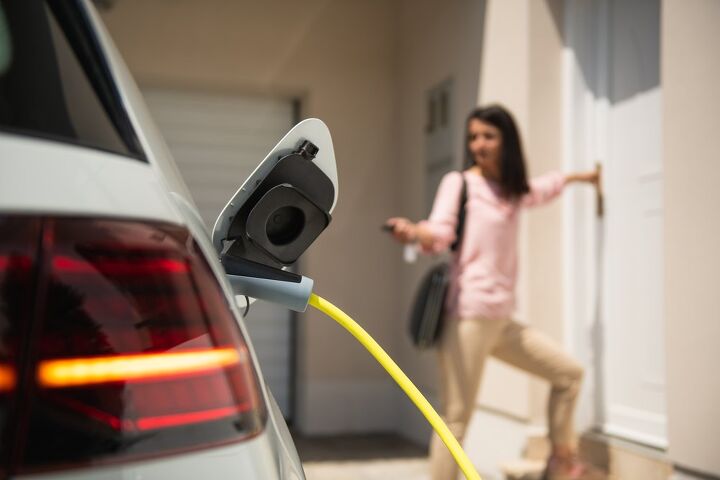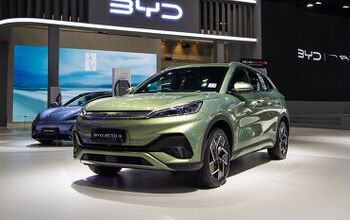Why More Americans Are Considering Electric Cars Now Than Ever Before
Recent data collected over a three-year period ending in February 2024 shows a significant increase in consumer searches for electric vehicles (EVs). Analysis indicates that interest in EVs has more than doubled, with a 177 percent rise in searches, underscoring a shift in consumer behavior and a greater inclination towards purchasing electric vehicles.
Influence of Fuel Prices on EV Demand
A distinct spike in searches for electric vehicles was noted between February and March 2022. This period coincides with increases in gasoline prices, suggesting a possible link between rising fuel costs and heightened interest in electric vehicles. Such trends highlight how external economic factors can drive consumer interest towards more sustainable vehicle options.
Popular Electric Vehicle Models and Pricing Trends
CarMax's sales data from September 2023 through February 2024 identifies the electric vehicles that are currently leading in popularity, along with their average sales prices:
- Tesla Model 3: $34,045
- Tesla Model Y: $43,896
- Nissan LEAF: $18,465
- Volkswagen ID.4: $31,576
- Ford Mustang Mach-E: $38,713
- Audi e-tron: $41,205
- Chevrolet Bolt EUV: $26,776
- Chevrolet Bolt EV: $22,564
- Tesla Model S: $45,574
- Hyundai Ioniq 5: $37,036
The pricing data reveals a range from approximately $22,000 to $45,000, which is significantly lower than the previous high of $72,000, suggesting that electric vehicles are becoming more financially accessible to a broader range of consumers.
Regional Sales Insights
While California remains a stronghold for electric vehicle sales, there is notable growth in the East Coast markets, particularly in Massachusetts, New York, and Maryland. This geographical expansion of EV sales indicates a nationwide shift towards electric mobility.
Public Sentiment and Market Response
Aligning with CarMax's findings, a 2023 Pew Research study revealed that a substantial portion of Americans are considering electric vehicles for their next purchase. This is reflective of a broader change in consumer preferences and a growing acceptance of electric vehicles across the country.
The collected data from CarMax not only emphasizes the diversity in popular electric vehicle models but also illustrates a trend towards more advantageous pricing. As the electric vehicle market continues to evolve, regional and national sales are expected to expand, supported by a favorable shift in public attitudes.
This article was co-written using AI and was then heavily edited and optimized by our editorial team.
More by TTAC Staff
Latest Car Reviews
Read moreLatest Product Reviews
Read moreRecent Comments
- Pau65792686 I think there is a need for more sedans. Some people would rather drive a car over SUV’s or CUV’s. If Honda and Toyota can do it why not American brands. We need more affordable sedans.
- Tassos Obsolete relic is NOT a used car.It might have attracted some buyers in ITS DAY, 1985, 40 years ago, but NOT today, unless you are a damned fool.
- Stan Reither Jr. Part throttle efficiency was mentioned earlier in a postThis type of reciprocating engine opens the door to achieve(slightly) variable stroke which would provide variable mechanical compression ratio adjustments for high vacuum (light load) or boost(power) conditions IMO
- Joe65688619 Keep in mind some of these suppliers are not just supplying parts, but assembled components (easy example is transmissions). But there are far more, and the more they are electronically connected and integrated with rest of the platform the more complex to design, engineer, and manufacture. Most contract manufacturers don't make a lot of money in the design and engineering space because their customers to that. Commodity components can be sourced anywhere, but there are only a handful of contract manufacturers (usually diversified companies that build all kinds of stuff for other brands) can engineer and build the more complex components, especially with electronics. Every single new car I've purchased in the last few years has had some sort of electronic component issue: Infinti (battery drain caused by software bug and poorly grounded wires), Acura (radio hiss, pops, burps, dash and infotainment screens occasionally throw errors and the ignition must be killed to reboot them, voice nav, whether using the car's system or CarPlay can't seem to make up its mind as to which speakers to use and how loud, even using the same app on the same trip - I almost jumped in my seat once), GMC drivetrain EMF causing a whine in the speakers that even when "off" that phased with engine RPM), Nissan (didn't have issues until 120K miles, but occassionally blew fuses for interior components - likely not a manufacturing defect other than a short developed somewhere, but on a high-mileage car that was mechanically sound was too expensive to fix (a lot of trial and error and tracing connections = labor costs). What I suspect will happen is that only the largest commodity suppliers that can really leverage their supply chain will remain, and for the more complex components (think bumper assemblies or the electronics for them supporting all kinds of sensors) will likley consolidate to a handful of manufacturers who may eventually specialize in what they produce. This is part of the reason why seemingly minor crashes cost so much - an auto brand does nst have the parts on hand to replace an integrated sensor , nor the expertice as they never built them, but bought them). And their suppliers, in attempt to cut costs, build them in way that is cheap to manufacture (not necessarily poorly bulit) but difficult to replace without swapping entire assemblies or units).I've love to see an article on repair costs and how those are impacting insurance rates. You almost need gap insurance now because of how quickly cars depreciate yet remain expensive to fix (orders more to originally build, in some cases). No way I would buy a CyberTruck - don't want one, but if I did, this would stop me. And it's not just EVs.
- Joe65688619 I agree there should be more sedans, but recognize the trend. There's still a market for performance oriented-drivers. IMHO a low budget sedan will always be outsold by a low budget SUV. But a sports sedan, or a well executed mid-level sedan (the Accord and Camry) work. Smaller market for large sedans except I think for an older population. What I'm hoping to see is some consolidation across brands - the TLX for example is not selling well, but if it was offered only in the up-level configurations it would not be competing with it's Honda sibling. I know that makes the market smaller and niche, but that was the original purpose of the "luxury" brands - badge-engineering an existing platform at a relatively lower cost than a different car and sell it with a higher margin for buyers willing and able to pay for them. Also creates some "brand cachet." But smart buyers know that simple badging and slightly better interiors are usually not worth the cost. Put the innovative tech in the higher-end brands first, differentiate they drivetrain so it's "better" (the RDX sells well for Acura, same motor and tranmission, added turbo which makes a notable difference compared to the CRV). The sedan in many Western European countries is the "family car" as opposed to micro and compact crossovers (which still sell big, but can usually seat no more than a compact sedan).


































Comments
Join the conversation